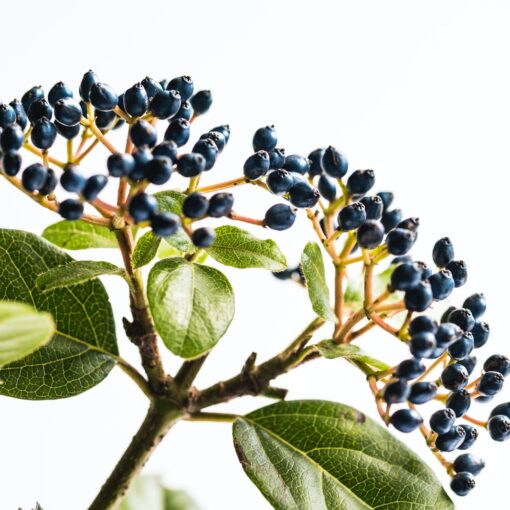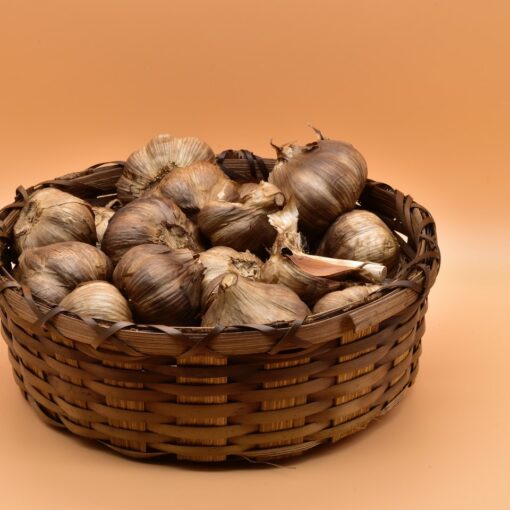Page Menu
Astaxanthin is the bright pigment that gives seafood like salmon and shrimp their pinkish color. It's not just a pretty face; it's also a powerful antioxidant that can be found in microalgae and other plants. Think of it as nature's way of providing a dash of color while also fighting off those annoying free radicals that like to mess up our bodies. Who knew that something so bright could make you feel like a superhero?
Key Concepts and Top Takeaways
– Incorporate astaxanthin-rich foods like salmon and shrimp into your diet.
– Consider astaxanthin supplements for enhanced endurance.
– Stay hydrated to support overall performance and recovery.
– Combine astaxanthin with regular aerobic exercise for best results.
– Monitor cholesterol levels regularly for heart health.
– Include anti-inflammatory foods, such as berries and leafy greens.
– Aim for a balanced diet rich in antioxidants to reduce inflammation.
– Get adequate sleep to aid recovery and boost endurance.
– Consult a healthcare professional before starting new supplements.
– Maintain consistent exercise routines to improve stamina over time.
Please Note: This post may contain affiliate links. If you click one of them, we may receive a commission at no extra cost to you. As an Amazon Associate, I earn from qualifying purchases.

This carotenoid has a lot of proof that it can help with endurance and inflammation. Astaxanthin might be your new best buddy if you're an athlete looking for an extra push. Studies have shown that cyclists who took this supplement were able to ride for longer before their legs started to hurt. Also, their bodies had reduced levels of inflammatory markers, which is a win-win situation!
But hold on, there's more! It looks like astaxanthin is also trying to make hearts healthier. Some studies say it might help lower cholesterol levels and lower the risk of heart disease. Imagine a vitamin that not only helps you get through your workouts but also keeps your heart healthy. That's like killing two birds with one stone, but the birds are excellent for your health.
People who want to add astaxanthin to their diet can get it as a dietary supplement. It seems to have a good reputation in the health world. If you walked into a room and casually said that you had been taking astaxanthin, people would either be impressed or confused about what you were talking about. Either way, you'll definitely get people interested!
If you want a supplement that can help you last longer and lower inflammation, astaxanthin is worth a try. After all, who wouldn't want to feel like they had an invisible shield around them that keeps the everyday grind at bay? Plus, it makes you feel like you're channeling your inner superhero who loves fish. [i]
Astaxanthin Products – Compare Lowest Prices at Amazon
Astaxanthin as an Antioxidant
Astaxanthin is a bright carotenoid that comes from algae and marine animals. It's not simply another fancy name you might see at a health food store. This small powerhouse works like nature's bouncer, kicking away hazardous reactive oxygen species from the body. This is especially true for the ones that cancer cells like to toss around like confetti at a parade. A study in Molecular Nutrition & Food Research found that astaxanthin can really stop human leukemia cells from partying. So, who would have thought that this vibrant chemical may also be a possible cancer-fighting superhero? You know how you discover out that your favorite snack is good for you? That's a great surprise!
Astaxanthin has been the most popular antioxidant lately. Its bright orange color, which seems like a sunset that is too good to be true, has stolen the show. This carotenoid not only makes our favorite salmon look like they just got back from a tropical vacation, but it also fights free radicals, which are those annoying little troublemakers that love to mess up our cells. Recent research has shown that astaxanthin doesn't just sit back and relax; it acts to stop cancer cells from growing and ignores heart disease.
This carotenoid isn't just beneficial for your looks; it also has certain health benefits. Astaxanthin is being studied for its possible use in treating a wide range of conditions since it has anti-inflammatory characteristics that could make even the most stubborn chronic diseases think twice. Astaxanthin is the best antioxidant for fighting oxidative stress, beating out other well-known ones like vitamin C and E. So, if you want to protect your cells and keep inflammation at bay at the same time, adding some astaxanthin to your diet might be the answer. Who would have thought that something so bright could be so beneficial for you?
Prevent Fatigue with Astaxanthin
Astaxanthin is a carotenoid that has been shown to be effective in preventing fatigue. A study published in the journal PLOS One found that astaxanthin supplementation was able to prevent fatigue caused by prolonged physical activity. The study also found that astaxanthin was effective in improving cognitive performance and reducing inflammation.
Fatigue is like that annoying guest who stays too long, especially for people who work long hours. It sneaks in and takes control, making it hard to focus, like trying to find a sock in a dryer. But don't worry! Astaxanthin is a carotenoid found in seafood and some plants that can save the day. This bright substance isn't just for making salmon look nice; it can also protect your cells and provide you a much-needed energy boost.
Fatigue is the worst enemy for athletes; it's always there throughout hard training sessions or contests. It would be hard to run a marathon if you felt like you were carrying a bag of bricks. Astaxanthin comes back! This natural pigment works like a pro fighter in the ring to boost stamina and fight off exhaustion.
Adding astaxanthin to your daily routine can be the secret weapon you need to fight off that annoying tiredness. This antioxidant not only protects your cells from injury, but it also helps your body make energy and stay strong. But we shouldn't forget that getting enough sleep, exercising regularly, and eating a healthy diet are still important ways to battle weariness. So, while you're at it, buy some seafood, take an astaxanthin vitamin, and get ready to take on the day like a champ!
Astaxanthin for Heart And Cholesterol Health
This small pigment isn't just for coloring flamingos pink; it's also quite good at fighting heart disease and stroke. Think of it as your heart's own bodyguard, with the power to stop inflammation and protect against harm. You can either take it as a supplement or sneak it into your food like a ninja.
If you like seafood, astaxanthin is on your menu and is good for your cholesterol and heart health in general. Recent research has almost sung its praises, revealing that it can lessen the risk of having a stroke or heart attack. That's a big gain! It's like that friend who always has your back when you're out late and things go wrong. Also, astaxanthin seems to be good at making blood vessels work better, which is like giving your arteries a day at the spa.
We shouldn't forget that it is a strong antioxidant. This small powerhouse doesn't just sit there; it works hard to keep cholesterol in check and boost heart health. One study even showed that astaxanthin can help people with coronary artery disease by increasing blood flow and lowering harmful cholesterol levels. That's not all, though. Another study found that it could improve heart function and lower the chance of death for people with heart failure.
And just when you thought it couldn't get any better, astaxanthin also helps protect you from strokes. This carotenoid is quickly becoming the go-to pick for people who want to keep inflammation at bay and support healthy lipid metabolism because it can cut bad cholesterol by an amazing 25%. Adding astaxanthin to your regimen could be a game-changer, whether you're a health nut or merely wanting to avoid heart problems.
Astaxanthin Protects Eyesight Health
Astaxanthin has been shown to protect the eyesight health of mice and rats. Astaxanthin was also shown to help improve the function of the eye's light-sensing cells. It has been shown to protect the eyesight health of mice by reducing the damage done by free radicals and improving vision after cataract surgery. Astaxanthin may also be helpful in reducing the risk of age-related macular degeneration (AMD).
Astaxanthin is like that friend who brings snacks to a party, but this time it's not just any snack—it's the kind that keeps your eyes alert and prevents oxidative stress! Picture a little superhero within your body, flying around and fighting off those annoying reactive oxygen species (ROS) that could damage your eyes. Recent studies have shown that astaxanthin is more than just an antioxidant; it can help reduce inflammation and lighten skin. Yes, you read that right—it's the person we all want to be who can do a lot of things at once!
But hold on, there's more! Astaxanthin has been found to be a strong opponent of age-related macular degeneration (AMD), which is a major cause of visual loss in older persons. Imagine this: you're sitting there, having a good time, then all of a sudden your vision starts to fade. Not cool. Astaxanthin comes to the rescue and protects the retina from the harmful effects of blue light exposure. This small powerhouse works extra to keep our vision intact while we binge-watch our favorite shows on screens.
The best part is that astaxanthin is a natural way to help you get good eyesight without any strange side effects or shady substances. It's like having a loyal friend who is always there for you. Adding astaxanthin to your regimen can be the finest thing you can do for your eyes and your looks at the same time. Who would have thought that taking care of your eyes could be so easy and fun?
Reduce Inflammation with Astaxanthin
This strong substance, which comes from marine algae, has shown that it can fight inflammation by lowering annoying signs including C-reactive protein, cytokines, and adhesion molecules. And if you thought it was simply about putting out flames in the body, think again—astaxanthin might just be your new best friend for heart health and even keeping cancer at bay.
Now, let's talk about swelling. Yes, it's your body's way of telling you that something is wrong, like when you stub your toe or have a bad cold. It should help you heal, but occasionally it gets a little too excited and becomes a full-blown drama queen, which makes you hurt, swell, and feel all kinds of bad. Some people might think that inflammation is the bad guy because they think it causes diseases and makes people age too quickly. But here's the thing: it's a very important part of how your immune system works.
Astaxanthin comes in with its superhero cape that fights inflammation! Research has revealed that this carotenoid can help with asthma and arthritis symptoms while also improving your brain function. This powerhouse isn't just good for one thing; it can also help with inflammation in the gut and lungs, making it a useful tool for getting healthier.
There are several natural ways to reduce inflammation, but astaxanthin is the best anti-inflammatory substance out there. If you want to get rid of pain and stiffness, especially if you have arthritis, you might want to try astaxanthin. Also, because it has strong antioxidant properties, it protects your cells from damage while fighting off harmful free radicals. Who would have thought a tiny color could make such a big difference?
Astaxanthin Fortifies the Immune System
This powerful carotenoid doesn't simply sit about; it fights oxidative stress, inflammation, and even cell death like a superhero in a lab coat. Astaxanthin is a promising treatment for cancer, and it works well.
Think about how good it would be for your heart and brain to get a boost while simultaneously boosting your immune system. That's what astaxanthin is for! It strengthens your defenses, boosts antibody production, and lowers inflammation, all while helping your brain work better. And it also covers your eyes, so they stay as bright as your future.
In one interesting study, astaxanthin showed its strength by making more white blood cells, which are microscopic fighters that fight infections. It also makes the macrophages, which you might think of as the body's cleanup crew, operate better to get rid of hazardous debris. If you want to convert winter into a wellness wonderland, adding astaxanthin to your diet could be the key to remaining healthy and thriving. Who would have thought that a little pink color could do so much?
Astaxanthin for Better Reproductive Health
Astaxanthin is a powerful pigment found in shrimp and algae that is getting a lot of attention not only for its bright color but also for its many health advantages. Picture this small antioxidant superhero coming in like a modern-day knight in shiny armor to fight inflammation, make your brain work better, and keep heart disease at bay. But hold on, there's more! This amazing chemical is also getting attention for its possible effects on reproductive health. Early studies suggest that astaxanthin might be the fertility fairy godmother we didn't realize we needed. It could help boost fertility rates and protect against oxidative stress, which can mess up reproductive outcomes.
Research shows that astaxanthin isn't just good for one thing; it can help with a lot of things that are good for reproductive health. It might aid couples who are going through the ups and downs of trying to get pregnant by making them more fertile and minimizing the risk of miscarriage. This spicy antioxidant could also help with arthritis by reducing inflammation, which would make life a little easier.
Astaxanthin could be your new best buddy if you want to get your monthly cycle back on track or increase your chances of having a healthy pregnancy. And guys, don't think you're off the hook—this substance is here to save the day for sperm quality and motility, helping to maintain those little swimmers in top shape while protecting them from DNA damage that could mess up your plans to have a baby.
Astaxanthin is a safe and natural ally in the search for reproductive health. If you're trying to become a parent, you might want to add this bright nutrient to your diet. Who knows? You might soon be celebrating more than just blue or pink!
Common Questions About Astaxanthin [i]
What are the benefits of taking astaxanthin? Astaxanthin is a carotenoid that is produced by microalgae and is responsible for the pink or red color of salmon, lobster, and shrimp. Astaxanthin has been shown to have a number of health benefits, including:
1. reducing inflammation;
2. protecting the eyes from UV damage;
3. improving cognitive function;
4. reducing the risk of cancer; and
5. reducing the risk of heart disease.
What are the side effects of taking astaxanthin? Astaxanthin is a powerful antioxidant that has many health benefits. However, there are some potential side effects of taking astaxanthin. Some people may experience stomach problems, such as nausea, vomiting, and diarrhea. Astaxanthin may also cause skin irritation in some people. It is important to consult with a doctor before taking astaxanthin to make sure it is safe for you.
Does astaxanthin make you gain weight? There is no evidence that astaxanthin causes weight gain. In fact, there is some evidence that it may help with weight loss. A study published in the journal “Bioscience, Biotechnology, and Biochemistry” found that astaxanthin supplementation helped reduce body weight and body fat mass in overweight and obese subjects. Another study published in the journal “PLoS One” found that astaxanthin supplementation improved insulin resistance and reduced waist circumference in participants with type 2 diabetes. While more research is needed on this topic, it appears that astaxanthin does not cause weight gain.
Can you take astaxanthin every day? Yes, you can take astaxanthin every day. Astaxanthin is a natural supplement that is derived from marine algae. It is a powerful antioxidant that helps protect the body from free radicals. Astaxanthin also supports the immune system and helps maintain healthy vision. It is safe to take astaxanthin every day, and there are no known side effects.
Is astaxanthin really that good? There's a lot of talk about astaxanthin lately. Proponents say that it's a miracle supplement with amazing health benefits. So is astaxanthin really that good?
The answer is complicated. Astaxanthin is a powerful antioxidant, and there's some evidence that it can help improve cardiovascular health and protect against cancer. However, more research is needed to confirm these benefits.
Astaxanthin also appears to have anti-inflammatory properties, which could make it useful for treating conditions like arthritis. And unlike some other antioxidants, astaxanthin is able to cross the blood-brain barrier, meaning it can protect your brain from damage.
Overall, there's definitely some evidence that astaxanthin is beneficial for health. But more research is needed to determine just how good it really is.
Does astaxanthin cause hair loss? There is no evidence to support the claim that astaxanthin causes hair loss. In fact, there are several studies that suggest astaxanthin may actually help promote hair growth. One study found that astaxanthin was able to improve hair follicle health and stimulate hair growth in mice. Another study found that astaxanthin was able to protect against hair loss in humans. While more research is needed, it appears that astaxanthin does not cause hair loss.
What should not be taken with astaxanthin? Astaxanthin is a powerful antioxidant that comes from certain types of algae. It has many health benefits, including reducing inflammation, improving heart health, and protecting the brain. However, there are some things that should not be taken with astaxanthin, including blood thinners and antibiotics. Astaxanthin can increase the effects of these medications, which can be dangerous. It is also important not to take astaxanthin if you are pregnant or breastfeeding, as it has not been tested for safety in these populations.
Does astaxanthin give you a tan? There is no scientific evidence to support this claim. Astaxanthin may help to protect the skin from UV radiation, but it will not cause a person to become darker after being exposed to the sun.
Can you take astaxanthin with turmeric? Curcumin is the active ingredient in turmeric. It has anti-inflammatory and antioxidant properties and has been shown to be beneficial for the heart, brain, and skin.
Both astaxanthin and curcumin are safe to take individually. However, there is not much research on whether or not they can be taken together. Some people believe that the two supplements work synergistically to provide additional benefits.
Is astaxanthin the same as fish oil? Fish oils are rich in omega-3 fatty acids, which are beneficial for heart health. Some people believe that astaxanthin offers the same health benefits as fish oil. However, there is limited evidence to support this claim. Astaxanthin may offer some benefits for heart health, but more research is needed to determine its effects. Fish oils are beneficial for heart health due to their omega-3 fatty acids, and these fatty acids are not found in astaxanthin.
Does astaxanthin make your skin darker? No one knows for sure if astaxanthin can make your skin darker. Some people believe that the carotenoid can change the color of your skin, while other experts say there is no evidence to support this claim. So far, there have been no scientific studies conducted on humans to determine if astaxanthin can cause hyperpigmentation.
Some research has been done on animals, and it appears that astaxanthin may have the ability to darken skin tone. One study found that rats who were given astaxanthin supplements had darker fur than those who didn't receive the supplement. It's not clear if this translates to humans, but more research is needed to say for sure.
At this point, it's unknown if astaxanthin can cause hyperpigmentation in people.
Is astaxanthin good for your lungs? Some people believe that it can be beneficial for the lungs, as it may help to protect them from oxidative stress. However, there is currently no scientific evidence to support this claim.
When is the best time to take astaxanthin? There is no one definitive answer to this question. Some people believe that the best time to take astaxanthin is before a workout, as it can help improve performance and endurance. Others say that taking astaxanthin after a workout is better, as it can help reduce inflammation and speed up recovery. Still others believe that taking astaxanthin every day is the best way to go, as it can help protect against oxidative damage. Ultimately, the best time to take astaxanthin will vary from person to person and depend on your individual needs and goals.
Can I take CoQ10 and astaxanthin together? There is no definitive answer to whether or not you can take CoQ10 and astaxanthin together as there is limited research on the subject. Some people say that taking the two supplements together could potentially increase their benefits, while others believe that taking them separately would be more beneficial. Until more research is conducted, it is best to speak with a healthcare professional to see if taking CoQ10 and astaxanthin together would be appropriate for you.
Can you take vitamin C and astaxanthin together? There is no definitive answer to this question as of now. Some people say that taking vitamin C and astaxanthin together can be helpful, while others believe that it can actually cancel each other out. In general, it is always best to speak with a healthcare professional before taking any kind of supplement, especially if you are already taking medication.
Is astaxanthin safe for kidneys? Some people are concerned that astaxanthin may not be safe for the kidneys. However, there is no evidence that astaxanthin is harmful to the kidneys. In fact, a study published in “PLoS One” found that astaxanthin was not only safe for the kidneys, but it also had protective effects against kidney damage.
Does astaxanthin help hair growth? There is not much research on astaxanthin and hair growth, but what little there is suggests that it might help. One study found that astaxanthin helped mice grow new hair, and another study found that it helped increase the thickness of human hair. More research is needed to know for sure if astaxanthin helps hair growth, but there's no harm in trying it out. Astaxanthin is a safe and natural supplement, so if you're looking for a way to improve your hair health, it might be worth considering.
Is astaxanthin good for your liver? There is some evidence to suggest that astaxanthin may be beneficial for the liver. One study showed that astaxanthin was able to protect the liver from damage caused by alcohol consumption. Another study showed that astaxanthin was able to reduce inflammation in the liver. While these studies are promising, more research is needed to determine the full extent of astaxanthin's benefits for the liver.
Does astaxanthin have omega-3? There is some debate over whether astaxanthin has omega-3 fatty acids. Some say that it does, while others claim that it does not. The truth is that, while astaxanthin does have some omega-3s, it is not a significant source of the nutrient. This means that if you are looking to get your omega-3s from astaxanthin, you will likely be disappointed. However, this does not mean that astaxanthin is not a valuable supplement. It still has many benefits that make it worth taking.
How long does it take to see the benefits of astaxanthin? Some people might experience a difference within a week or two, while others may take longer. The benefits of astaxanthin can depend on the person and their specific needs. Additionally, the dosage and form of astaxanthin also play a role in how quickly someone sees results. Generally speaking, though, most people should start to feel some benefits within a month or two of taking astaxanthin supplements.
Does astaxanthin increase testosterone? There is some evidence that astaxanthin may help increase testosterone levels. In a study on rats, those given astaxanthin showed increased levels of testosterone. However, more research is needed to confirm these findings. If you are looking for a natural way to boost your testosterone levels, talk to your doctor about whether astaxanthin might be right for you.
Is astaxanthin bad for osteoporosis? There is some concern that astaxanthin could worsen osteoporosis. However, there is no firm evidence to support this claim. In fact, some research suggests that astaxanthin could actually help protect against bone loss. Until more is known, it is best to speak with a healthcare professional before taking astaxanthin if you have osteoporosis.
In conclusion, it would appear that astaxanthin can improve endurance and reduce inflammation. This could lead to better heart health and a decrease in cholesterol levels. More research is needed to confirm these effects, but supplementation with astaxanthin may be a good idea for people looking to improve their overall health.
[i] The claims made on this website are not FDA-approved. The products mentioned on this website do not diagnose, treat, cure, or prevent illness. Before using supplements, ask your doctor. Pregnant or breastfeeding women, persons with medical issues, or those taking drugs should see a doctor before using any type of dietary supplements. If you suffer any bad effects after using any of the products mentioned on this website, please see your doctor. Be sure to keep any supplements or medications stored safely away from children.

Kevin Collier is a seasoned health writer at Otchut.com, specializing in over-the-counter medicines, common medical ailments, and general health topics. With a background in healthcare and a passion for making medical information accessible, Kevin aims to empower readers with knowledge to make informed health decisions. When he's not writing, he enjoys researching the latest in health trends and advocating for wellness in his community.





